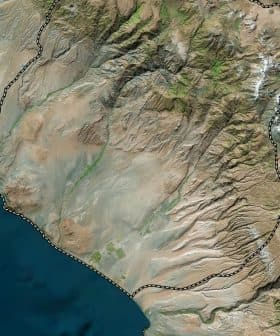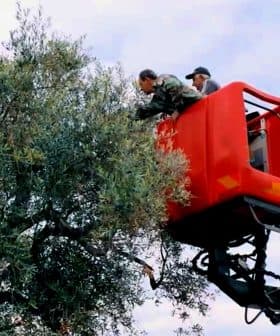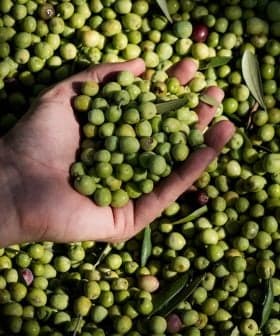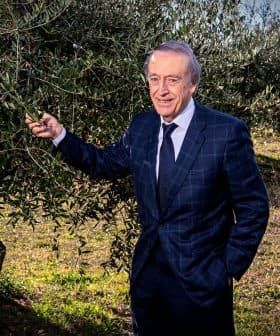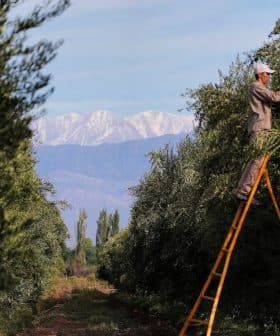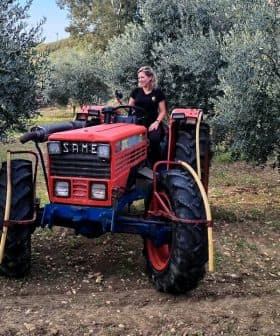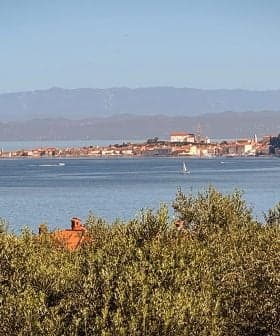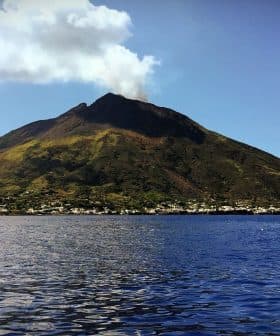South African Producers Celebrate Quality After Season Marred by Blackouts
Seven producers from South Africa’s Western Cape combined to win a record-high 16 awards at the world’s largest olive oil quality competition.
 Babylonstoren attribute some of their success to the terroir of the Franschhoek wine valley. (Photo: Babylonstoren)
Babylonstoren attribute some of their success to the terroir of the Franschhoek wine valley. (Photo: Babylonstoren) South African producers from the Western Cape achieved record success at the 2023 NYIOOC World Olive Oil Competition, earning a total of 16 awards. Despite challenges such as power cuts and inclement weather, the country’s producers maintained a 100-percent success rate with 16 extra virgin olive oil samples awarded from 16 entries, showcasing the quality of their oils and compensating for a drop in production.
South African producers overcame historically bad power cuts and inclement weather to achieve record success at the 2023 NYIOOC World Olive Oil Competition.
Seven producers, primarily from the Western Cape, the largest producing region in the country, combined to earn a record-high 16 awards, eclipsing the previous year’s record by six.
The awards celebrate the excellent work of our entire team and affirm our dedication to the best agricultural, milling and production practices of which we are capable.
More impressively, farmers and millers earned a 100-percent success rate with 16 extra virgin olive oil samples awarded from 16 entries, the only time a country has achieved perfection with more than seven entries at the competition.
South African producers yielded around 1.2 million liters of extra virgin olive oil in the 2022/23 crop year, down from almost 1.7 million liters in the previous year. However, the quality of their oils compensated for the drop in production.
See Also:The best extra virgin olive oil from South Africa“We are honored that South African extra virgin olive oils are competing, acknowledged and awarded the highest accolades in international competitions,” Wendy Petersen, the chief executive of the South African Olive Industry Association (SA Olive), told Olive Oil Times.
Among the big winners from the Southern Hemisphere’s fifth-largest producer was Mardouw Olive Estate. The Western Cape producer between Ashton and Robertson earned two Gold Awards for its Frantoio and Favolosa monovarietals.
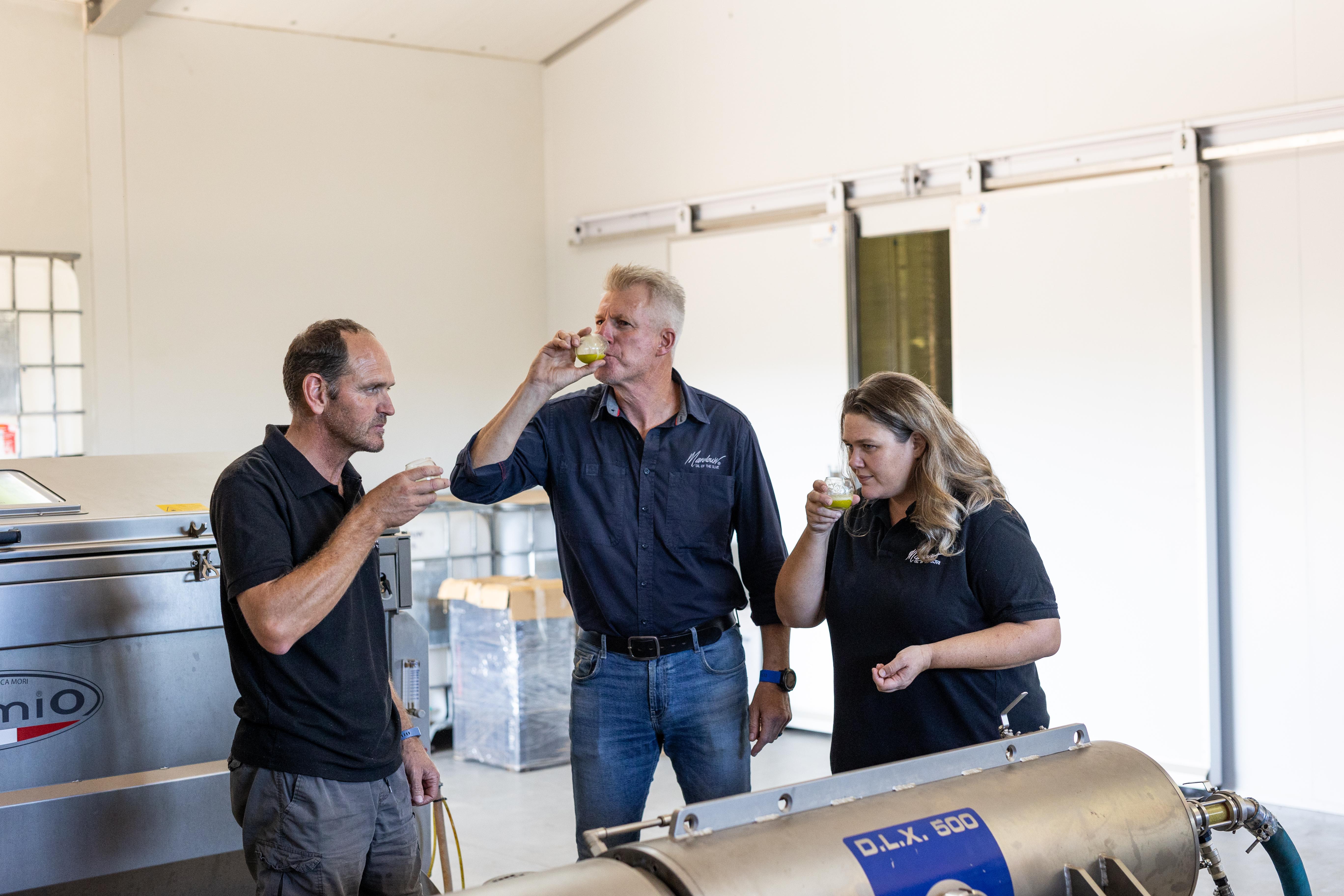
Tasting at Mardouw
“It is a huge honor,” general manager Philip King said. “This is Mardouw’s third consecutive year that we have been awarded, and every time feels like the first time.”
King hopes that winning these awards will help increase tourism and services for Mardouw Olive Estate, other producers in the region and the rest of South Africa.
King said load-shedding, a euphemism in South Africa to describe rolling blackouts, was one of the company’s most significant challenges in producing olive oil this year. “But we got backup electricity in the form of a generator,” he said. “The work had to go on.”
About 150 kilometers west of Mardouw Olive Estate, Babylonstoren was another of the country’s multi-award winners, earning three Gold Awards for its Coratina and Frantoio monovarietals along with a blend.

(Photo: Babylonstoren)
“We are absolutely thrilled and honored to have received this recognition,” said Petrus van Eeden, Babylonstoren’s olive specialist.
He added that the awards prove the company’s extra virgin olive oil is as good or better than its competitors, especially as the brand establishes a footprint in the United States.
“Since our olive oil already has a presence in the U.S., which we aim to expand, entering the competition was a natural choice,” van Eeden said.
He attributed the company’s success in its first time entering the competition to loamy soil and sunny Mediterranean climate on the slopes of Simonsberg in the Franschhoek wine valley, where the company grows 14 cultivars.
Van Eeden said the Babylonstoren’s production team overcame substantial amounts of rain during the harvest, which presented various challenges.
“It made the harvesting process more complex and slowed down our operations,” he said. “The rain delayed the ripening of the olives, resulting in a longer harvesting season than anticipated.”
Still, Van Eeden added they managed to harvest olives of exceptional quality despite these hurdles.
Further north, Porterville Olives continued its long-running success streak at the World Competiton, winning two Gold Awards and one Silver Award for its Andante brand.
“The awards celebrate the excellent work of our entire team and affirm our dedication to the best agricultural, milling and production practices of which we are capable,” co-owner Willie Duminy told Olive Oil Times.
Porterville Olives earned two Gold Awards for its Favolosa and Nocellara del Belice monovarietals and the Silver Award for a delicate blend.
Duminy said Porterville’s NYIOOC awards prove the western part of the Western Cape Province has the producers, expertise, climate and terroir needed for world-class olive oil production.
“Our Andante brand celebrates this and has achieved considerable traction and acclaim, thanks to the support and encouragement provided by the NYIOOC awards,” he said.
Duminy described the recent harvest on Wêreldsgeluk Olive Estate, where the company produces its olive oil, as slightly below average.
He said daytime temperatures during the early harvest were high, requiring fruit cooling before crushing. Intermittent interruptions of the electricity supply due to load-shedding also made the timing of the harvest and cooling operations difficult.
“Otherwise, we generally had favorable conditions and a congenial harvest,” he said, adding that the trees enjoy a good balance of sunshine, rain and wind due to the favorable environment and climate.
“We care for them, feed them and keep them healthy to the best of our ability since they are the true progenitors of our olive oil,” Duminy said. “We carefully control the temperature of the fruit before washing and crushing and keep our plant and production facility meticulously clean.”
He added that observing the paste, tasting it and assessing the aroma and mouthfeel of their oils throughout the process provide meaningful feedback and inform adjustments they make to the processing parameters.
Nick Wilkinson, the co-owner of Rio Largo Olive Estate, also located between Robertson and Ashton in the Western Cape, was another familiar face at the NYIOOC, winning a Gold Award.

Rio Largo Olive Estate co-owner Brenda Wilkinson with the company’s creative packaging options. (Photo: Rio Largo Olive Estate)
“[Winning at the NYIOOC] demonstrates that our little corner of the globe, not known for olive oil production, can excel quality-wise,” Wilkinson told Olive Oil Times.
“Our production in the Southern Hemisphere is released into international markets when Northern Hemisphere oils are already six to seven months old,” he said, “Given our quality profile as adjudicated in the NYIOOC, we can offer premium quality fresh oil to discerning consumers globally for release in July each year.”
Wilkinson said their consistent record of success at the NYIOOC over the past years gives credence to their quality profile in the international market.
“Another win builds on our credibility that we are not a one-year wonder,” he said. “We don’t need to stand back for the traditional producers from the Mediterranean basin, but rather compete head-on with the benefit of fresh oil in July each year.”
“There are challenges every year as seasons and crop yields differ from heavy to light,” Wilkinson added. “It is simply my job as the oil maker to adapt processing patterns to produce the best possible quality.”
Wilkinson said that as a developing region, South Africa faces additional challenges of an unreliable state infrastructure with periodic electricity black-outs, poor roads and the burden of a poorly trained civil service.
“But hey, this is normal for us, and we simply handle it,” he said. “Rio Largo invested in a solar energy plant to make us self-reliant [from load shedding], and so it will go on.”
Share this article


